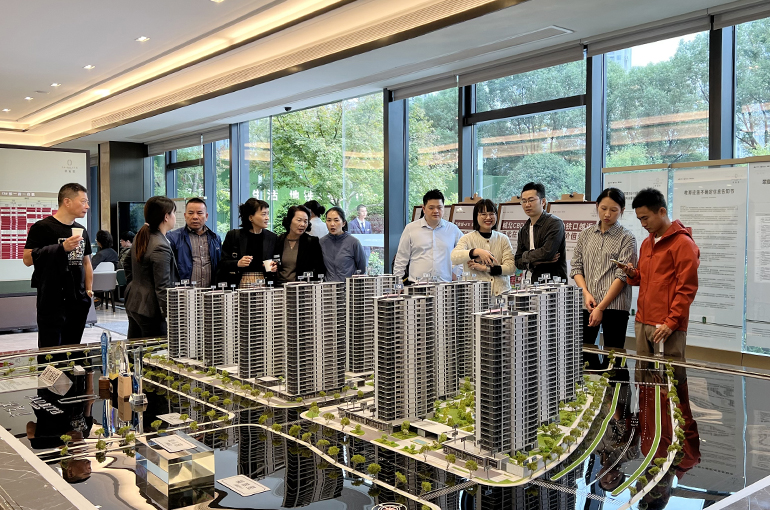 Big Chinese Cities Open Up Access to Residency, Home Buying as Society Ages
Big Chinese Cities Open Up Access to Residency, Home Buying as Society Ages(Yicai) May 22 -- Hangzhou, Nanjing, and two other Chinese cities with economies larger than CNY1 trillion (USD138.8 billion) have relaxed their household registration and house buying policies recently in the hope of spurring an influx of new residents, not just high-skilled talent, as China’s population ages and the fertility rate drops.
Hangzhou, where Alibaba, NetEase, and many other tech giants have their headquarters, announced on May 9 that it will not only end checks on homebuyers in the city, but those who have acquired property legally can apply to settle.
Hangzhou’s policy shift helped to boost the number of property deals in the city, according to Lu Wenxi, an analyst at Centaline Property. Having more people with household registration, or hukou, will support local real estate markets, something that is also interconnected with to each city’s own economic vitality and industrial layout, he said.
Within the space of the past month, Nanjing, Wuhan, and Foshan also said homebuyers will get automatic household registration. That means that acquiring hukou in these cities, which is important in getting access to social welfare and public education in China, is no longer restricted by education, age, or employment.
Nanjing has been gradually relaxing its policy this year. Before February, homebuyers who sought hukou in the city had to be under 35, have a junior college degree or higher qualification, and show contributions to social insurance in the city for at least 12 months. That month, the sole requirement became a stable local job. House buying became another route last month.
The policy easing should help bolster China’s urbanization process. More than 66 percent of the population lived in cities as of last year, though less than half of all household registrations were in urban areas, meaning there were 297 million migrant workers without urban residency, according to official statistics.
The next step for the nation is to give a higher priority to granting urban residency to people who have moved from rural areas to the cities, Li Hui, a senior official in the National Development and Reform Commission, China’s top planning agency, said on April 25.
But key cities such as Beijing and Shanghai will probably hold on to their strict policies. As population control is still necessary for first-tier cities, they are unlikely to allow people to gain household registration after just buying a home, Lu added.
Editor: Emmi Laine